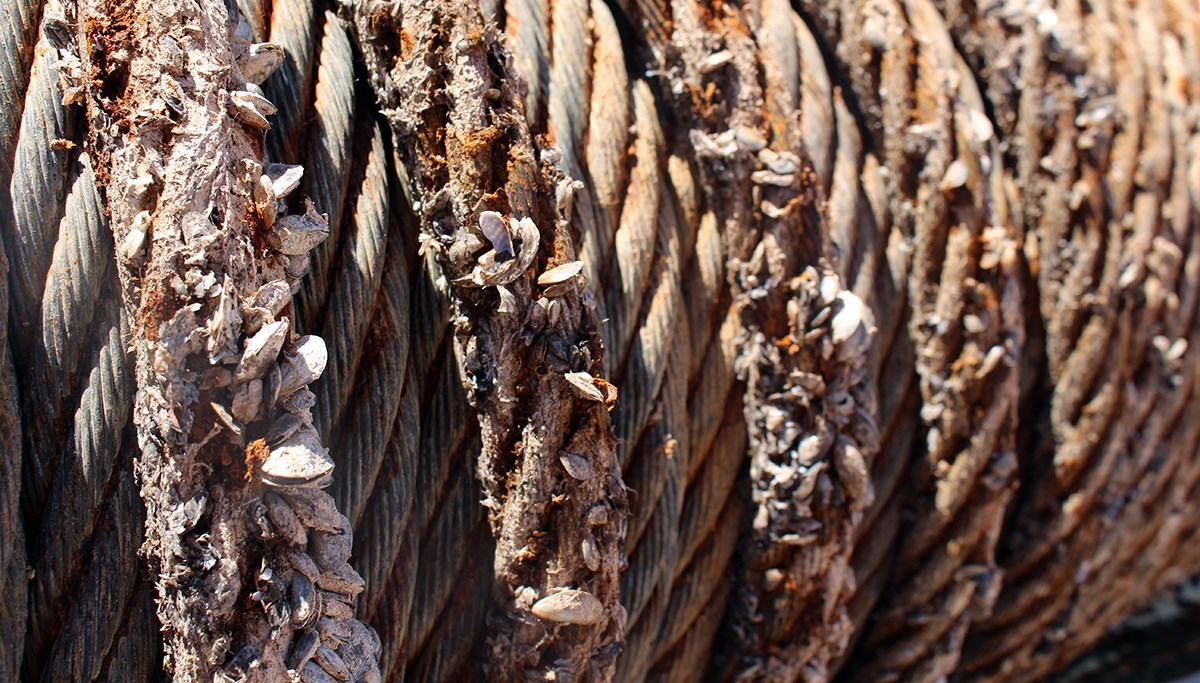
NPS Quagga mussels are an invasive species infesting multiple lakes in the Southwest. They are native to seas in Eastern Europe and were first discovered in the United States in the Great Lakes Region in the 1980s. Quaggas multiple rapidly, are easy to spread, and cause harm to the environment, equipment, and infrastructure as they encrust and clog boat engines, shorelines, and anywhere else conducive to their growth. Thousands of adult quagga mussels have been found in Lake Powell, attached to canyon walls, the Glen Canyon Dam, boats, and other underwater structures. Adult mussel populations are expected to expand and increase as the season progresses and over the next few years. Your Boater ResponsibilitiesIt is illegal to transport invasive species regulated by federal or other jurisdictional laws into the U.S. and across state and international borders. It is crucial to keep the mussels from moving from Lake Powell to other lakes and rivers. Boaters can help by making sure your vessels and equipment are not contributing to the problem. Cooperate with prevention and containment efforts at Lake Powell and all your favorite waters to help stop the spread of aquatic invasive species like mussels. Launching at Lake Powell/Colorado RiverEnsure your watercraft and equipment arrive clean, drained, and free of aquatic hitchhikers. Remember to put your plugs back in before launching. Exiting Lake Powell/Colorado RiverMOTORIZED WATERCRAFT
JET BOATS AND PERSONAL WATERCRAFT (PWCS)
All Motorized Vessels:
NON-MOTORIZED WATERCRAFT - Canoes, rafts, kayaks, rowboats, paddleboats, inflatables, sculls, and other non-motorized recreational watercraft also require proper treatment.
Clean. Drain. Dry.Follow the Clean. Drain. Dry. procedure for every body of water, every time.
State LawsUtah and Arizona state laws require you to CLEAN, DRAIN, and DRY your boat when leaving Lake Powell using self-decontamination procedures. Additional steps are required if you launch on other waters without a significant drying period or if you are on Lake Powell for more than 5 days. No matter where you are headed next, it is illegal to transport aquatic invasive species. Prevent Delays and Reduce Costs Associated with Transporting, Buying, and Selling Boats
Communication Prevents DelaysThe western state and provincial AIS coordinators know the laws and regulations for their jurisdictions, and they’re available to assist you by informing you of their laws and providing you with any other tools and information you need to successfully transport a boat, or sell/auction a boat, particularly those coming from water bodies infested with aquatic invasive species. Contact any western state or provincial AIS coordinator via the website. Commercial Boat Haulers – Call Before You HaulHere’s what you can do to comply with state laws and help prevent the spread: 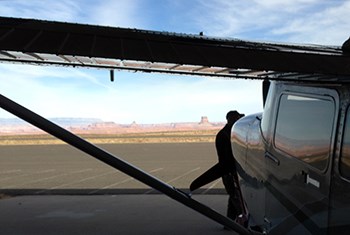
NPS It's Not Just for BoatersAnglers, kayakers, swimmers, even seaplane pilots need to Clean. Drain. Dry. their equipment. Get specific information for specific types of recreation from the Stop Aquatic Hitchhikers webpage. Those fishing in the Lees Ferry area will find wader cleaning stations at multiple locations, available to help clean, drain, dry boots and equipment on site. There are aquatic invasive species besides quagga mussels found at Lees Ferry. More Information About Quagga Mussels at Lake Powell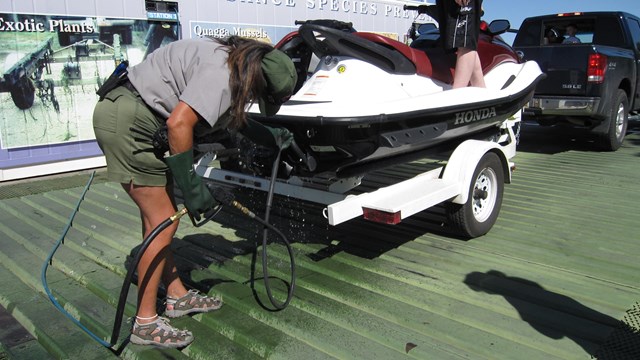
Decontamination
State law may require watercraft decontamination by National Park Service staff or other professional. 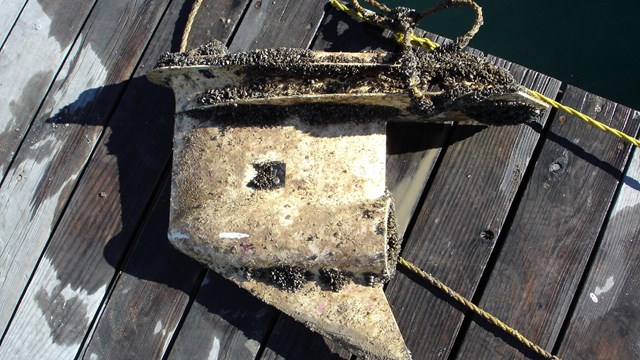
Mussel FAQs
Frequently Asked Questions on mussels at Glen Canyon 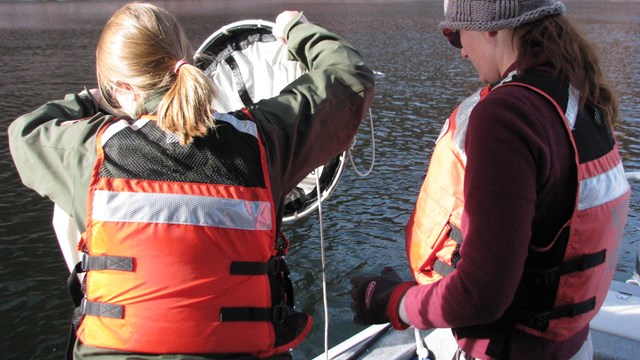
Mussel Monitoring at Lake Powell
Glen Canyon maintains an active monitoring program to detect the presence and spread of aquatic invasive species in Lake Powell and the Colo 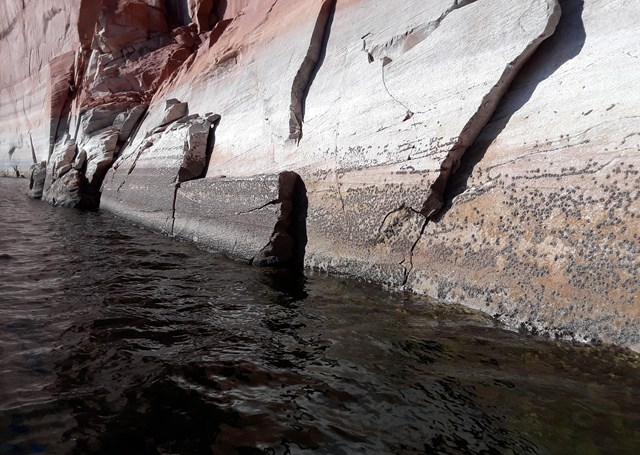
History of Mussels at Glen Canyon
Glen Canyon was at the forefront of the movement to detect and prevent the spread of aquatic invasive species since the threat became known. 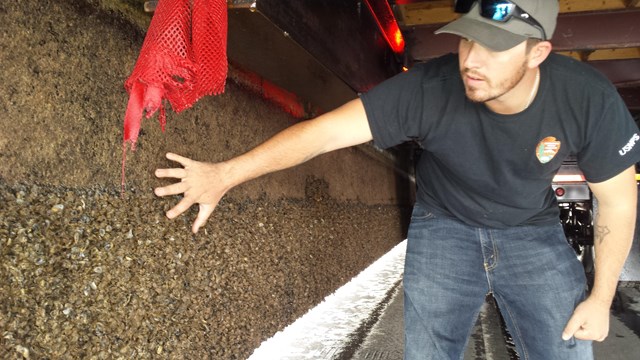
Quagga Mussel Containment Program
Glen Canyon's extended response strategy to minimize the spread of invasive mussels from Lake Powell and to manage park operations 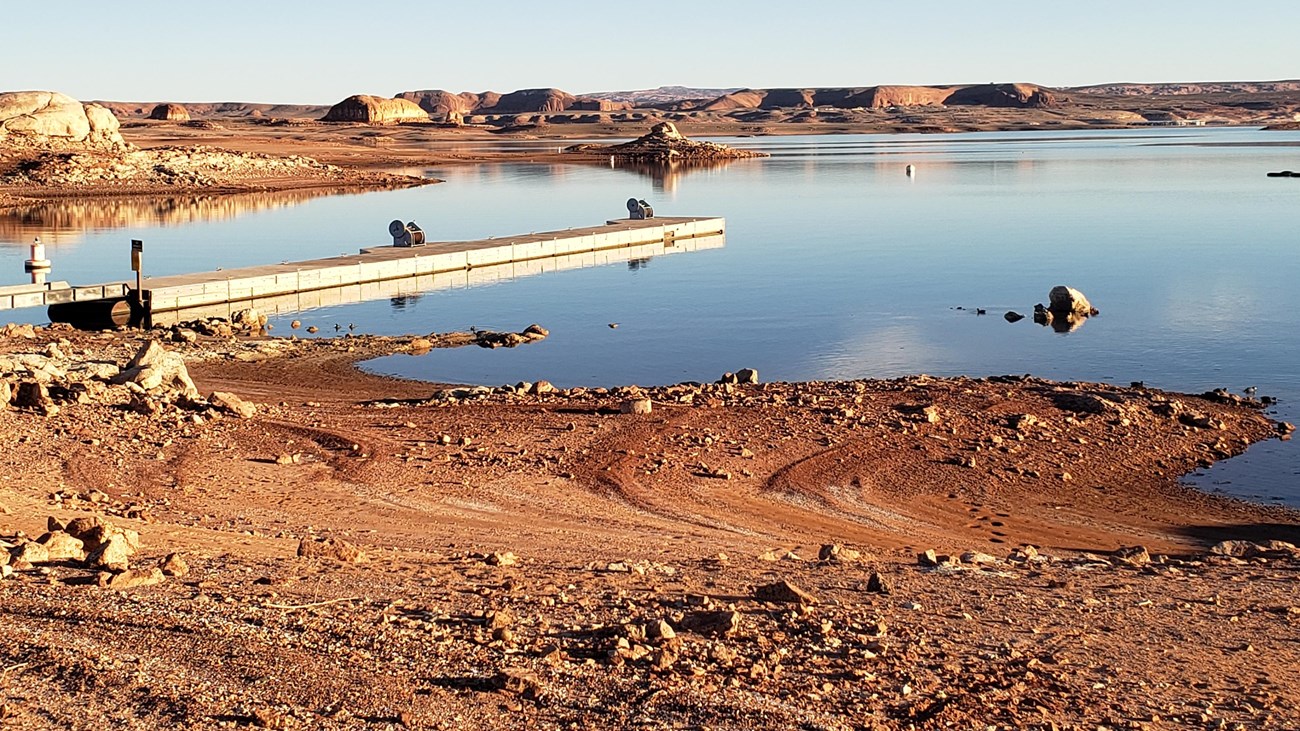
Changing Lake Levels
Lake Powell water levels are changing. How will this affect my visit? |
Last updated: March 3, 2023
